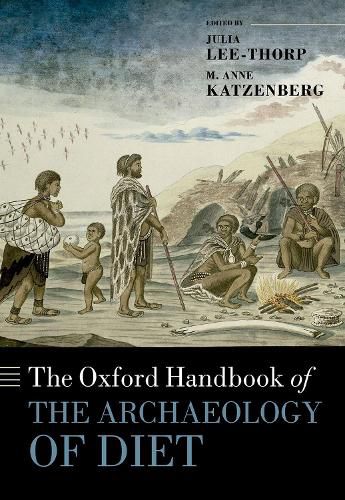Readings Newsletter
Become a Readings Member to make your shopping experience even easier.
Sign in or sign up for free!
You’re not far away from qualifying for FREE standard shipping within Australia
You’ve qualified for FREE standard shipping within Australia
The cart is loading…






Humans are unique among animals for the wide diversity of foods and food preparation techniques that are intertwined with regional cultural distinctions around the world. The Oxford Handbook of the Archaeology of Diet explores evidence for human diet from our earliest ancestors through the dispersal of our species across the globe. As populations expanded, people encountered new plants and animals and learned how to exploit them for food and other resources. Today, globalization aside, the results manifest in a wide array of traditional cuisines based on locally available indigenous and domesticated plants and animals. How did this complexity emerge? When did early hominins actively incorporate animal foods into their diets, and later, exploit marine and freshwater resources? What were the effects of reliance on domesticated grains such as maize and rice on past populations and the health of individuals? How did a domesticated plant like maize move from its place of origin to the northernmost regions where it can be grown? Importantly, how do we discover this information, and what can be deduced about human health, biology, and cultural practices in the past and present? Such questions are explored in thirty-three chapters written by leading researchers in the study of human dietary adaptations. The approaches encompass everything from information gleaned from comparisons with our nearest primate relatives, tools used in procuring and preparing foods, skeletal remains, chemical or genetic indicators of diet and genetic variation, and modern or historical ethnographic observations. Examples are drawn from across the globe and information on the research methods used is embedded within each chapter. The Handbook provides a comprehensive reference work for advanced undergraduate and graduate students and for professionals seeking authoritative essays on specific topics about diet in the human past.
$9.00 standard shipping within Australia
FREE standard shipping within Australia for orders over $100.00
Express & International shipping calculated at checkout
Humans are unique among animals for the wide diversity of foods and food preparation techniques that are intertwined with regional cultural distinctions around the world. The Oxford Handbook of the Archaeology of Diet explores evidence for human diet from our earliest ancestors through the dispersal of our species across the globe. As populations expanded, people encountered new plants and animals and learned how to exploit them for food and other resources. Today, globalization aside, the results manifest in a wide array of traditional cuisines based on locally available indigenous and domesticated plants and animals. How did this complexity emerge? When did early hominins actively incorporate animal foods into their diets, and later, exploit marine and freshwater resources? What were the effects of reliance on domesticated grains such as maize and rice on past populations and the health of individuals? How did a domesticated plant like maize move from its place of origin to the northernmost regions where it can be grown? Importantly, how do we discover this information, and what can be deduced about human health, biology, and cultural practices in the past and present? Such questions are explored in thirty-three chapters written by leading researchers in the study of human dietary adaptations. The approaches encompass everything from information gleaned from comparisons with our nearest primate relatives, tools used in procuring and preparing foods, skeletal remains, chemical or genetic indicators of diet and genetic variation, and modern or historical ethnographic observations. Examples are drawn from across the globe and information on the research methods used is embedded within each chapter. The Handbook provides a comprehensive reference work for advanced undergraduate and graduate students and for professionals seeking authoritative essays on specific topics about diet in the human past.